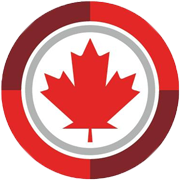The majority of aspiring students planning to take admission into one of the reputed educational institutions of Canada are required to have a study permit to study in Canada. These permits are granted at the discretion of Canadian immigration officers. Unfortunately, your permit may be refused on various grounds. If your permit is denied, the visa officer will write a rejection letter stating the reasons for the denial.
If Immigration, Refugees, and Citizenship Canada (IRCC) deny your permit, there are two options to deal with the rejection:
If you believe that your application satisfied all of the IRCC requirements, but the study permit was denied unfairly or wrongly, you may appeal against the decision and request reconsideration for your study visa application.
If you believe that the grounds for rejection are justified, the only option is to re-apply. You should take special care in the current application to address the previous grounds for rejection. In addition, submit your updated documents i.e., the start date on the acceptance letter, updated bank statements, etc.
When your application to study in Canada is denied, the rejection is indicated in a letter sent to the failed applicant by the visa officer. In this letter, the visa officer will state the reasons for rejection from a list of pre-determined criteria. This list of reasons provides just basic information about the reasons for the rejection.
When a visa application is denied, the applicant has the right to see the visa officer's notes underpinning the rejection. It is strongly advised that these notes must be requested to understand the reasons for the denial and to assist you in responding to the rejection. After getting the case notes from the visa officer, an applicant can easily decide whether or not the grounds for the rejection were justified. If the permit was denied on reasonable grounds, the best option is to re-apply after fixing the errors and with all the necessary documentary evidence.
If the study permit was denied on such grounds the applicant believes are invalid, the applicant may file an appeal demanding reconsideration. Both the appeals and resubmission processes may take a significant amount of time. In case the applicant is unable to secure a permit on time i.e., on the originally scheduled date, they should contact their institution and request changes to their intended start date.
A Canadian study visa application may be denied for a variety of reasons. These grounds will be stated in the IRCC rejection letter. The case notes from the visa officer can help you to better understand the reasons for rejection. The following are the most prevalent reasons for the rejection:
When you apply for a study permit, you must show that you have enough money to maintain yourself in Canada. According to IRCC, all overseas students must demonstrate that they have enough finances to cover their tuition expenses for the first year of study, as well as the cost of living for themselves and accompanying family members.
In this case, you should carefully analyze the financial evidence you supplied with your application. Make sure you address the visa officer's concerns and submit supplementary documentation to demonstrate that you meet the financial criteria.
A study permit is a type of temporary visa that has a validity period with an expiration date. You must convince the visa officer, with the help of your application to study in Canada, that you will depart the country after the expiry of your permit. That doesn't mean you can't apply to extend your permit or stay indefinitely.
In reality, the government has created several initiatives to assist students in staying and working in Canada after completing their education or transitioning to permanent residence. It only means that the visa officer must have faith in you and you will not stay in the country illegally. Normally, this doubt arises when you are unable to demonstrate that you have compelling reasons to return to your home country.
In this case, your statement of purpose is the best method to address all the concerns. If the visa officer isn't satisfied with your story, you should revise your statement to address their concerns directly.
Here, it should be noted that it is possible to actively seek both permanent and temporary residence in Canada simultaneously. It can be accomplished through the use of a dual intent claim in an application.
Study permit applications are often denied if the visa officer does not comprehend the logic behind your selection of program or level of study. For example, an individual with a B.Sc. (Nursing) from the Philippines with work experience of nearly four years, is now applying for a program specializing in hotel management, which may be questioned.
In this case, the chosen program in Canada does not appear to be a good match for the applicant's educational background or career history. So, you must clearly explain your reasons for pursuing it with the help of your statement of purpose or personal statement. This is another instance where seeing the visa officer's notes can be quite beneficial.
You must first get a letter of acceptance from a Designated Learning Institution (DLI) in Canada, before applying for a study permit. You must also fulfill all the criteria related to your desired program. If the visa officer has any suspicions about the authenticity of your letter of acceptance or that you have genuinely satisfied the program requirements, they may refuse your permit.
In this case, examine the school documentation you have submitted. Check that all the documents are clear and easy to read, and give any additional supporting documentation required to support your claims. If required, you should also contact the DLI that issued the document, for further assistance in dealing with the officer's concerns.
If you do not have a complete record of your travel history or if your identity documents are ambiguous, the IRCC may deny your study permit application. To establish whether you are medically or criminally ineligible to Canada, IRCC must be able to authenticate your identity.
If the visa officer believes there are gaps in your travel history, go over the papers you filed as well as the visa officer's notes to determine which periods are problematic. When re-applying, bring additional supporting information to cover these periods. If the issue is with your identity documents, go over your application again to ensure that it is clear and easy to read.
It can be confusing and stressful to study as an international student in Canada. There are numerous schools and programs to choose from, and study permit applications are frequently denied due to failure to meet government requirements.
Fortunately, the Nationwide Visas Team is here to assist you in keeping things simple. We are the best immigration consultant in Delhi. We will help you select the appropriate program of study in Canada that meets your requirements, obtain a letter of acceptance, prepare, and submit your study visa application, and help you successfully get through the other processes involved.
Simply fill out our free student assessment form and one of our Educational Counsellors will contact you to discuss your immigration options!




Get a call within 55 seconds
Points Calculator
Get a call within 55 seconds